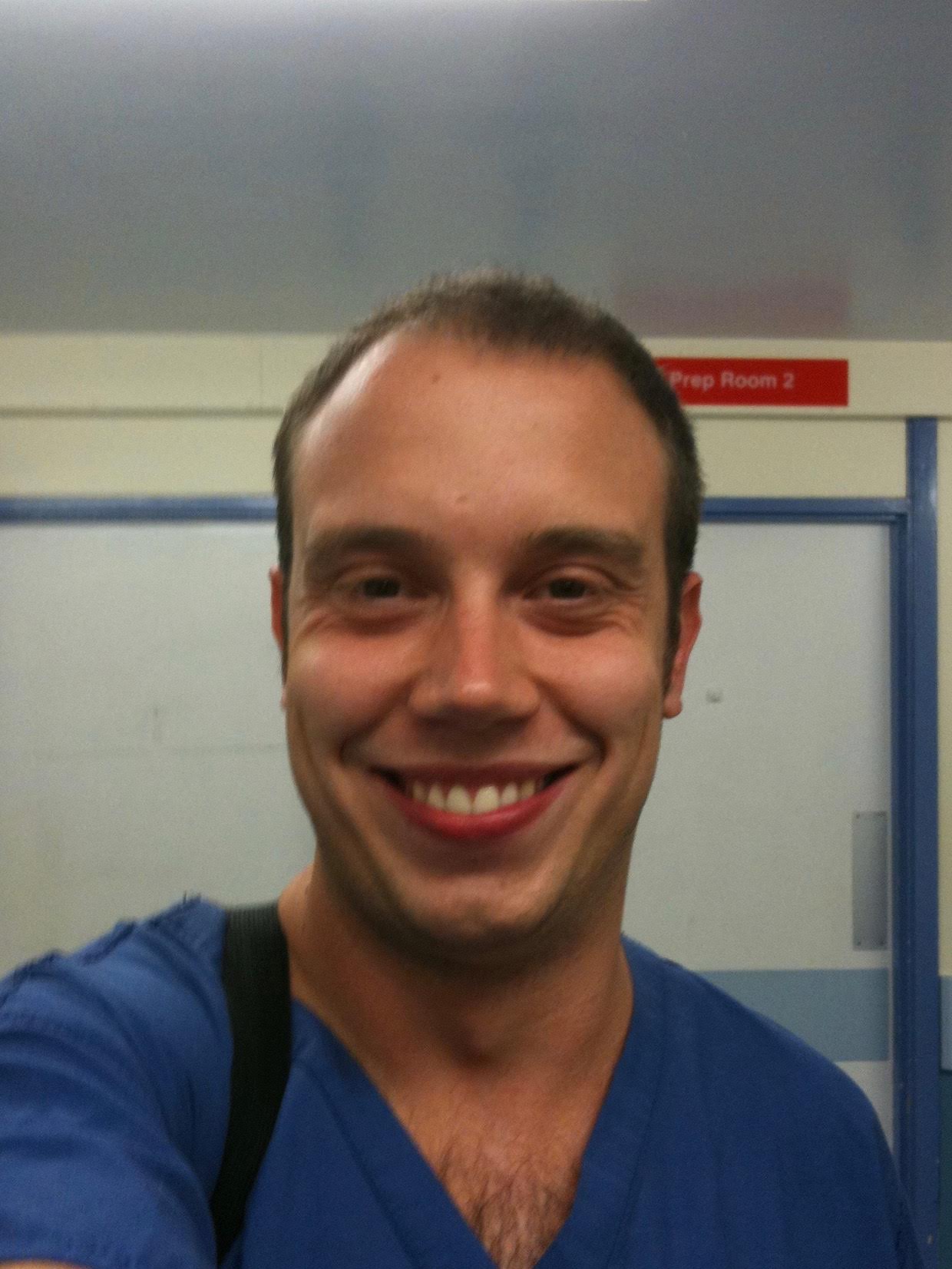
Ben Parsons, Lifebox Fellow 2016
What was your first experience of anesthesia in a low-resource setting?
I spent two months in the Solomon Islands, at the end of medical school. It was totally eye-opening because I’d done all my training around the South East of England. Suddenly here I was on a tropical island, very little in the way of resources, one couple running the entire hospital and a couple of medical students standing there with their mouths wide open, not really sure what was going on…
What did you learn?
I remember walking in the first day – a tiny hospital, fairly late in the evening. I thought I’d go and introduce myself, let them know I’d arrived. I found the couple in the OR, doing an emergency C-section.
There was a power cut, no electricity and they said ‘give us a hand – here’s a torch.’
It was almost pitch black and I stood there, shining a torch over the OR table so they could see what they were doing. It was like that for two months – just experiencing life in a hospital with very limited infrastructure and equipment.
At that stage I was just an extra pair of hands with very little medical experience, not much to offer – but I always wanted to come back to help when I had more medical experience..
How do you relate anaesthesia practice in the U.K. to other places you’ve worked?
Anaesthesia is a huge responsibility – and in the U.K. we take for granted how lucky we are to have the equipment, training and the resources to provide a safe service.
Patients, too, I think, take for granted that when they come for surgery they’re going to be looked after by someone who is well-trained and working in a well equipped operating room to ensure their experience is as safe and complication-free as possible.
But in low and middle-income countries, where they don’t have the luxury of resources or ongoing training, surgery can be a much more dangerous and risky proposition. And even with the smallest operation, there’s the potential for things to go seriously wrong.
So anaesthesia without an oximeter –
It doesn’t make sense. It’s a basic piece of equipment that was always available during my training in the U.K. I’ve never been somewhere where there wasn’t an oximeter available – and I don’t think any colleague I’ve worked with would think about giving an anaesthetic without one. You just wouldn’t do it.
So those shocking numbers that Lifebox publicizes – the ORs around the world that don’t have access to an oximeter – that’s one of the reasons why I wanted to join in. It’s such a brilliant concept, getting basic equipment and the Checklist, which is now routine across portions of the world, and shown to have such an improvement in safety – to people who need it. A simple thing which will make such a major impact improving the safety of anaesthesia and surgery around the world.
You’re the second Lifebox Fellow in residence at Jimma, Ethiopia. How did you hear about the post, and what did you learn from the first Fellow?
I was actually on the same rotation as Nick Owen, but I didn’t know he was a Lifebox Fellow. One morning I picked up the Royal College of Anaesthetists’ bulletin and saw – oh! – he’s off to Ethiopia.
I’d been aware of Lifebox for a couple of years – seen lots of promotion at conferences and courses, online and through AAGBI publications – but became more aware as my own personal interest in global surgery and global health grew. I just wanted to get involved with a charity that was well-run and making a real impact.
I really appreciated hearing how much time Nick spent working out what he could do from a quality improvement perspective, particularly the WHO Checklist. He spent a lot of time during his Fellowship teaching and training, and the residents really appreciated that. It can be hard to get regular teaching, mentoring, regular support in the OR. I think the education side of the Lifebox Fellowship has the most potential to change the experience of people at the hospital.
What do you hope to achieve?
You can’t just go somewhere and say ‘this is the best way to do something’ – you need to understand how the local system works, and you need to fit into the team, understand where both sides are coming from. That’s how we improve surgical and anaesthesia safety anywhere in the world – by working together.
I’m hoping that when I’m out there, we’ll work to change even the smallest things that can make a massive difference to help reducing that risk.

